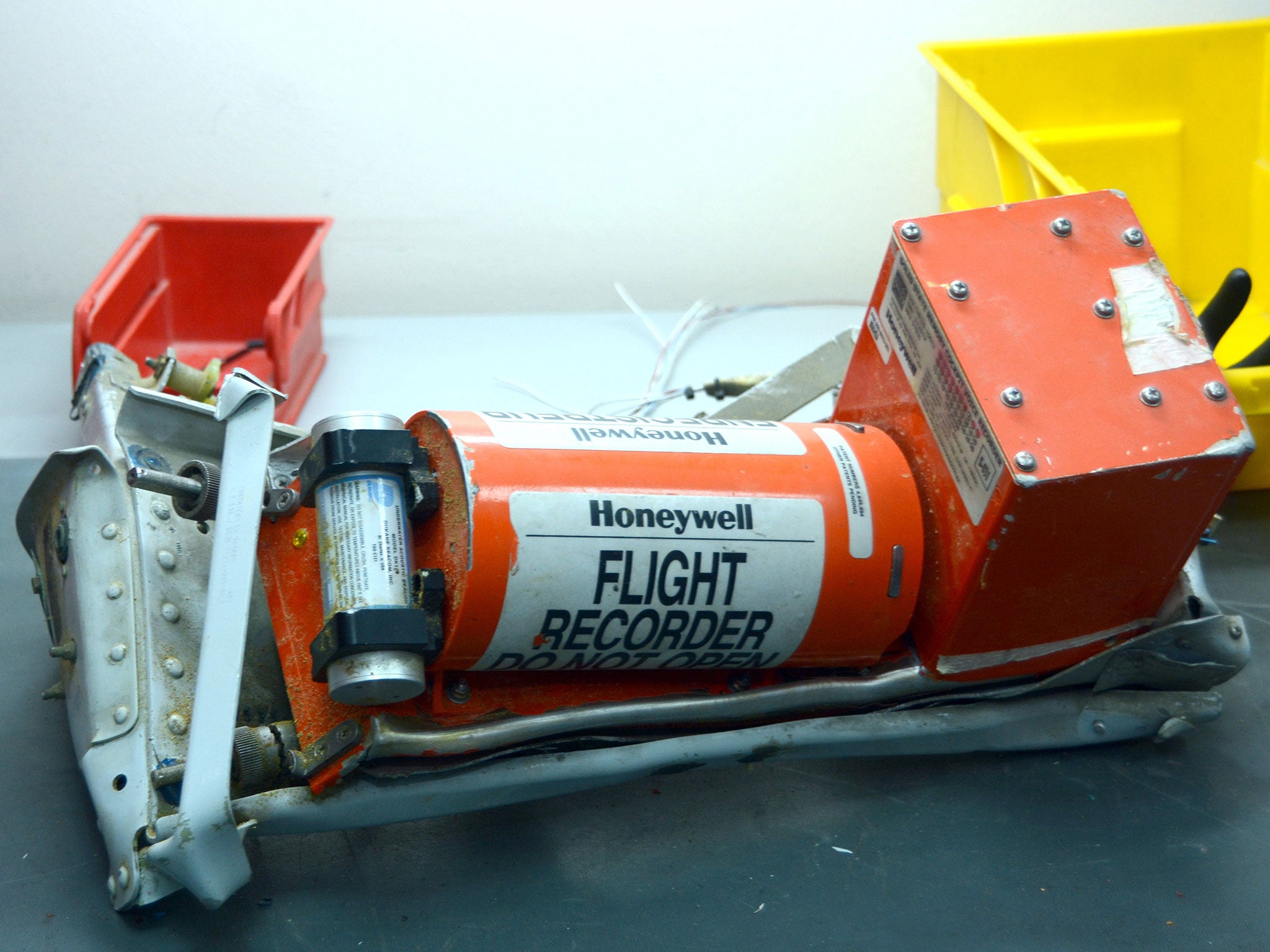Russian plane crash: Flight recorders reveal ‘unusual sounds’ moment before jet disappeared
Russian media report first findings of cockpit audio recordings, as US officials reveal a 'heat flash' was spotted by an American satellite at the time

Your support helps us to tell the story
From reproductive rights to climate change to Big Tech, The Independent is on the ground when the story is developing. Whether it's investigating the financials of Elon Musk's pro-Trump PAC or producing our latest documentary, 'The A Word', which shines a light on the American women fighting for reproductive rights, we know how important it is to parse out the facts from the messaging.
At such a critical moment in US history, we need reporters on the ground. Your donation allows us to keep sending journalists to speak to both sides of the story.
The Independent is trusted by Americans across the entire political spectrum. And unlike many other quality news outlets, we choose not to lock Americans out of our reporting and analysis with paywalls. We believe quality journalism should be available to everyone, paid for by those who can afford it.
Your support makes all the difference.The disappearance of the Russian airliner which crashed in Sinai on Saturday was preceded by sounds in the cockpit “uncharacteristic of a standard flight”, according to Russian media.
The Interfax news agency quoted officials in Cairo as providing a first insight into audio recordings from the Airbus 321’s “black box” recorders.
They reported that after a period of routine discussions between crew members, “the recordings show sounds uncharacteristic of a standard flight precede the moment of the airliner’s disappearance”.
According to Interfax, the recordings also suggest "there was a sudden emergency situation on board which took the crew by surprise, and the pilots did not have time to send a distress signal".
Confusion remains over whether the crash of the plane, which broke up in mid-air and sent debris across the remote and conflict-ridden region of Egypt, was caused by an internal fault, explosive device or external action.
On Monday evening, US intelligence officials told NBC News that an American satellite picked up a strong “heat flash” in the area at the time of the crash.
According to NBC, officials said the flash was not preceded by a heat trail from below – suggesting there’s no indication the plane was struck by a missile.
“The speculation that this plane was brought down by a missile is off the table,” the official said.
US officials pointed to an explosion on the plane itself as the most likely cause, but there is no way of telling from satellite images whether it was caused by a fuel tank or possible bomb on board.
Kremlin officials have not ruled out a terrorist attack on the plane, which was carrying 224 people at the time.
But speaking to BBC News, Egypt’s President Abdul Fattah al-Sisi said that Isis’s claim to have brought down the jet at 35,000ft was “propaganda”, and said the area of Sinai in question was under government forces’ “full control”.
Meanwhile, the US Embassy in Cairo has instructed its staff to avoid travel anywhere in the Sinai Peninsula as a “precautionary measure” until further notice.
On Tuesday morning, a St Petersburg official said the first nine bodies of victims in the crash have been officially identified, and their families informed.
Igor Albin, a deputy governor of Russia’s second city from which the majority of passengers hailed, said the identification process could take several weeks.
Join our commenting forum
Join thought-provoking conversations, follow other Independent readers and see their replies
Comments